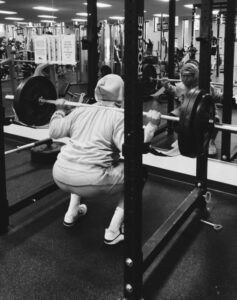At this point, we all know that sleep is essential. We’ve heard countless lectures from parents, professors, coaches, and maybe even friends on the importance of getting quality sleep.
But when college life gets busy and the assignments start piling up, sleep is the first thing to go to the wayside.
This is counterintuitive. Work that’s done while sleep deprived is usually of a lower quality, leading to a lower grade. Unless the assignment is due at midnight, your best bet is to get some rest and crush it in the morning.

Sleep is also when your brain moves things you learned from your short-term memory into your long-term memory. Knowing this, why would you ever pull an all-nighter before an exam?
Below, I will share a few sleep hygiene tips to help you fall asleep quicker and maximize the brain-boosting benefits of quality rest.
Go to sleep around the same time most nights
Our lives are busy, and this isn’t always possible, but when you go to bed within an hour of the same time every night, your body will start to recognize that it’s time to sleep and will fall asleep quicker. Aim to do this six days out of the week and you are likely to experience less tossing and turning.
Ditch the phone before bed
I won’t dive into all the science of blue light and circadian rhythms here, but just know that being on your phone right before bed is severely harming your sleep quality. Constantly stimulating your brain via TikTok, Instagram, or any other social media app makes it way harder to fall asleep. Reading a book or doing some journalling are better options to unwind before bed. Try to turn the electronics off one hour before you hit the hay.
Cut off caffeine
Okay, I’ll admit that I’m guilty of not always following this one. Caffeine has a half-life of three to five hours in most people. So, if you have a large coffee with 200 milligrams of caffeine at 5 pm there could still be 100 milligrams of caffeine flowing through your bloodstream at 10 pm. Setting a consistent caffeine cut-off time for yourself will help ensure that you aren’t wide awake at bedtime.
I hope that these tips help you get better sleep and better grades. If you’re interested in learning more about this topic, I would recommend reading Why We Sleep by Matthew Walker.
